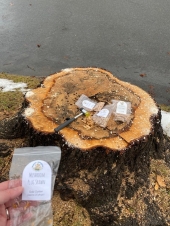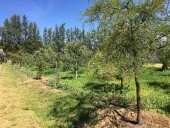








Idle dreamer




The State of Colorado is coming down on them for "overusing". Pretty sad.




Kent




Idle dreamer





Paul Cereghino- Ecosystem Guild
Maritime Temperate Coniferous Rainforest - Mild Wet Winter, Dry Summer
 1
1




1. my projects





 1
1









Idle dreamer


















The bit where people are worrying that roof catchments would reduce input to salmon streams sounds a bit hysterical.






Paul Cereghino- Ecosystem Guild
Maritime Temperate Coniferous Rainforest - Mild Wet Winter, Dry Summer

|
nothing beats office politics like productivity. Or maybe a tiny ad:
Learn Permaculture through a little hard work
https://wheaton-labs.com/bootcamp
|


